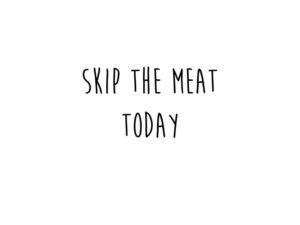A medium grilled steak right from the BBQ… honestly, I find it hard to say no to that. Germany was and still is quite a carnivore country so you would say as a meat lover, I moved to the right place to go crazy on meat. The opposite happened.
In Berlin, every other restaurant seems to be advertising with vegan friendly alternatives, so out of curiosity, I ended up trying out new things in those places. As a side effect, I started reading about the meat production, watching documentaries, talking to people, and yes, I even tried out cooking tofu the right way at home.
The meat production industry has been long topic of discussion. Scandals with horses sold for cows and bad animal conditions have been exposed which makes a consumer question the meat when not knowing exactly where it comes from. As soon as people have some income, you’ll therefore also see they will buy their meat more consciously, looking in to the origins and preferably buying from a local butcher or wealthy farmers meat. I would also consider myself a conscious consumer. Okay, good for me.
Is being a conscious meat consumer really enough to save the world?
When I started greenifying my life, I had to ask myself: Is being a conscious meat consumer really enough to save the world? Would a vegetarian or vegan lifestyle be even better, and what is ‘Meatless Monday‘ actually all about?
What is the environmental problem with meat?
If you really love meat too, it could be advisable to stop reading here. The environmental issues that come from our meat-loving habits are truly scary. I am only focusing on the environmental problems in my story, and will leave aside all the other reasons to eat less meat (for instance health reasons, and compassion for animals). Because for environmental issues only; It is simple math.
In Germany, average meat consumption per year is around 61 kilos. When we assume that this is beef, then probably 371 kilos of grain was fed to the cows in order for you to eat the beef. Roughly 817.000 liters of water was needed to grow the food and produce the beef. As a comparison, you could also shower 12.500 times with that water (that is 34 times a day!). Over 1400 kg of CO2 emissions were needed, which equals driving from Germany to Uzbekistan and back. Even a child can reason that this is a totally inefficient use of raw materials.
And then I did not even get started about other negative effects during badly designed production processes, such as waste dumping, ocea n exhaustion (for fishing), deforestation, etcetera.
n exhaustion (for fishing), deforestation, etcetera.
Once I learned more, I could not get this out of my head anymore. We need more than a meatless Monday. My suggestion is: Just skip the meat today. This is a small hack you can apply every day, over and over again. A world of meat-free alternatives will open up to you. Just crab a good cooking book and choose a pretty veggie dish to cook. It saves a lot of money, which on occasion maybe can be spent on an expensive, organic, grass-fed, good old steak.
Oh, and if you are a German carnivore, click here, I have a wonderful vegan suggestion just for you! Just try it and tell me what you think.
- Bring Your Own Bag - November 7, 2016
- Make an anti-wishlist - September 18, 2016
- Zero Waste Ice Cream - September 3, 2016
